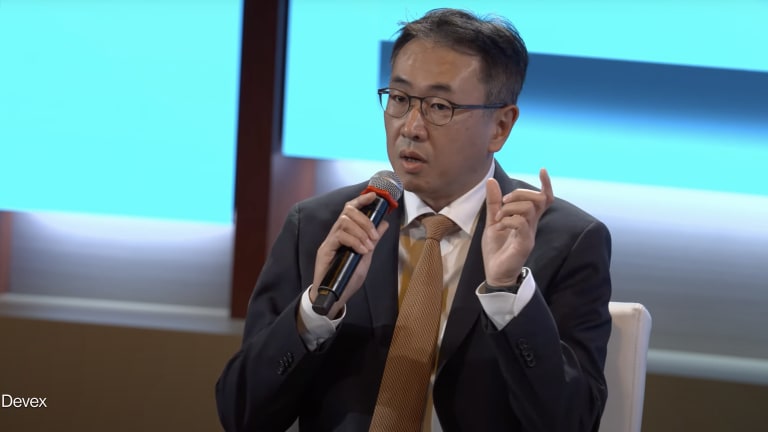
SAN FRANCISCO — Digital technologies are blurring the boundaries of firms, notes the “World Development Report 2019,” which focuses on the changing nature of work.
The rise of digital platforms, which create instant business opportunities for entrepreneurs, can either provide new opportunities for women around the world — or leave them further behind, warns the World Bank.
In an effort to boost opportunities for women in emerging markets, the International Finance Corporation, launched Digital2Equal last week. Under the initiative, 17 technology companies agreed to take three steps over the next year to expand access to equal opportunities on their platforms.
“Disruptive technologies can close gaps between men and women,” Alexa Roscoe, who manages the initiative, said at an event IFC hosted last week in San Francisco, California, called Disrupting the Gender Divide. “But the truth is it’s not enough to think about disruptive technologies. We have to think about disruptive business models as well.”
Digital2Equal builds on research from the report “Driving Toward Equality,” which combined data provided by Uber and surveys of drivers and riders across six countries, to highlight how women participated in digital platforms differently than men. Women found it easier to sign up as drivers via an app than break into the male-dominated taxi sector, their incomes increased at a greater rate than men’s, and many of them felt more independent than before they had access to ride-hailing, Roscoe explained.
“By focusing on the platform economy, we built on our existing research to focus on an area that we know is going to be really important for women, because women can potentially work in places where they might not otherwise be able to grow businesses,” she told Devex in an interview following her talk.
Each of the 17 companies involved in Digital2Equal are taking three actions: Making commitments to promote gender equality on their platforms; participating in learning events with IFC and partners including the International Labour Organization and the United Nations to put these goals into practice; and working together to put out new research on how to close gender gaps.
The steps companies will take to promote gender equality on their platforms will differ company by company.
One of the 17 — Jumia, a company based in Lagos, Nigeria, with a presence in 14 African countries — has committed to doing a sex-disaggregated analysis of its direct sales force, which it thinks could offer advantages to self-employed women on the continent.
Airbnb is also involved in Digital2Equal, committing to support women’s participation in the digital economy, especially in rural and underserved areas, through training and network access.
“We will also develop additional travel safety resources to support our female guest and host community, and continue to support women in the Airbnb workplace through enhanced programs and resources,” said Courtney O’Donnell, director of strategic engagements at Airbnb.
The launch of Digital2Equal follows the launch of the Women Entrepreneurs Finance Initiative, or We-Fi, which aims to leverage close to $2 billion from the private sector to support female-owned small and medium enterprises. Stephanie von Friedeburg, chief operating officer at IFC, said while access to capital is important, technology is too, particularly in lower-income countries where women are on average 26 percent less likely to use the internet than men.
“I think we need to let women come online, do the things that they want to do, and let them flourish and obviously something will go wrong and we will discover what went wrong and we will fix it,” said Anjali Joshi, vice president for product development at Google, also a member of Digital2Equal, in a panel at the Disrupting the Gender Divide event highlighting how women are the largest emerging market.
Looking toward the future, Roscoe said IFC is also starting to consider its role in emerging technologies, such as artificial intelligence and blockchain, so it can get ahead of the curve rather than retroactively working to make sure women can participate equally.








